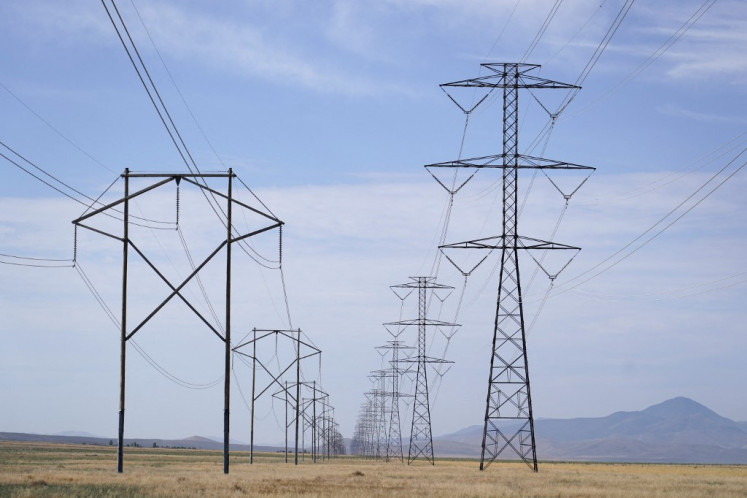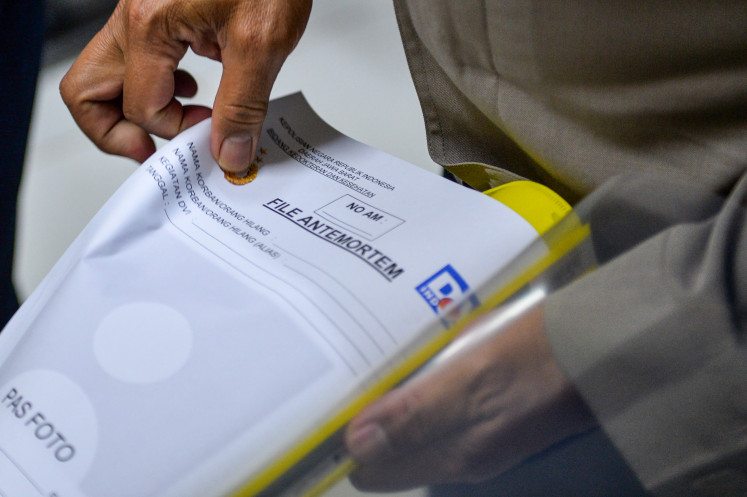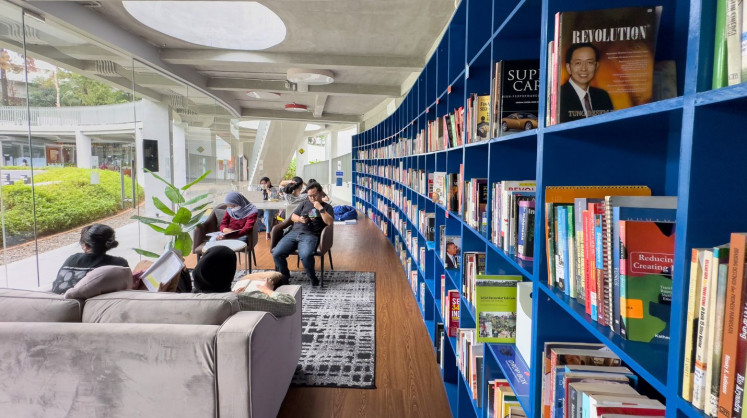Jakarta may allow Bekasi to use dump
Jakarta administration officials are still discussing whether to allow Bekasi municipality to dump waste at the Jakarta-operated Bantar Gebang landfill in Bekasi, West Java
Change text size
Gift Premium Articles
to Anyone

J
akarta administration officials are still discussing whether to allow Bekasi municipality to dump waste at the Jakarta-operated Bantar Gebang landfill in Bekasi, West Java.
Governor Fauzi Bowo said that the Jakarta administration might permit waste disposal from its satellite neighbors, which included Bekasi, South Tangerang, Depok and Bogor Regency, at the landfill.
“Bantar Gebang can be used by other administrations; it is not by any means exclusive,” Fauzi told reporters at the City Hall on Tuesday.
The governor, however, said that neighboring administrations should obey existing regulations regarding waste disposal.
“They will have to pay to send their waste there,” he said.
Last month, Bekasi administration said it had submitted a proposal to the Jakarta administration to dump its waste in Bantar Gebang.
Bekasi, however, said that it would be difficult for the administration to pay Bantar Gebang’s waste treatment fee, which is set at Rp 105,834 (US$11.5) per ton.
Bekasi Sanitation Agency said recently that the administration could not afford to pay. The agency estimated that Bekasi residents produced a total of 510 tons of garbage daily, which meant that the administration needed to earmark more than Rp 18 billion to pay Jakarta.
Bekasi proposed to pay a proportion of the waste retribution fees, currently set at Rp 10,000 per cubic meter of garbage. The satellite administration asked for help from West Java administration in negotiating the waste fees with Jakarta.
Separately, Jakarta Sanitation Agency chief Eko Bharuna said the city officials were still discussing the waste fees tariff.
“Bekasi said they could only afford to pay a fee of Rp 3,000 per cubic meter of waste,” Eko said.
The agency chief said that Jakarta was also considering the fact that Bantar Gebang was located in Bekasi.
The Jakarta administration has a contract with the Bekasi administration, renewed in 2009, to use the Bantar Gebang landfill until 2029.
Eko said that Bekasi municipality was not the only administration wanting to dump waste in Bantar Gebang. “Bekasi regency, South Tangerang, Depok and Bogor Regency have also submitted proposals.”
The administration has been looking to reduce its reliance on the 110-hectare Bantar Gebang landfill, with plans to operate more Intermediary Waste Treatment Facilities (ITF) in the city.
Jakarta produces an average of 6,000 tons of solid waste a day.
The city began operation of the Cakung-Cilincing ITF in August 2011, and is planning to operate Sunter ITF and Marunda ITF next year. The facilities are all located in North Jakarta.
The Cakung-Cilincing ITF has the capacity to process 400 tons of garbage every day, which will be increased to 600 tons per day later this month and 1,300 tons per day when it becomes fully operational in July.
Sunter ITF has been designed to process up to 1,500 tons of garbage each day and Marunda ITF 2,500 tons a day. Altogether, the three ITFs will have a total capacity of 5,300 tons of garbage each day.









